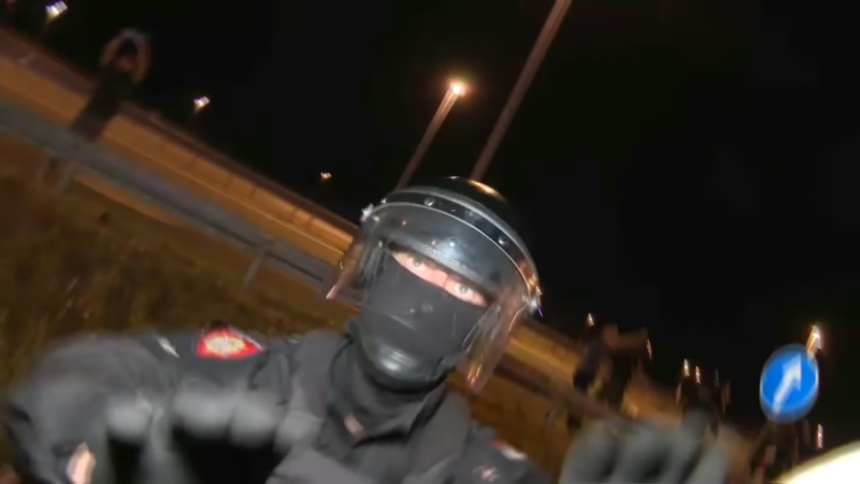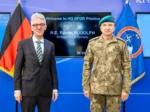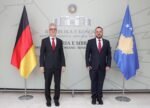Nearly one year after the collapse of the Novi Sad railway station roof, which killed 16 people and triggered nationwide protests, journalists covering the tragedy and its aftermath continue to face escalating violence, threats, and intimidation.
According to Reporters Without Borders (RSF), at least 89 physical attacks against media professionals have been recorded in the past 12 months — the highest number since 2008.
In 2025 alone, 82 cases have been documented, and almost half of these incidents involved police officers. RSF notes that in numerous cases, law enforcement failed to intervene when the attackers were government supporters.
One of the most striking cases occurred on October 11, when independent journalist Dalibor Stupar attempted to film the arrival of pro-government activists at a counter-rally in Belgrade. Police pushed him and seized his phone, telling him he had “no right to report from a public gathering.”
Stupar, who works for the Beta news agency and the Autonomija portal, has become a symbol of the struggle faced by Serbian journalists who encounter obstacles, censorship, and violence while reporting on anti-government demonstrations.
In cooperation with the Independent Journalists’ Association of Serbia (NUNS), RSF provides financial and technical support — including protective vests and helmets — to help reporters stay safe on the ground.
“We pay tribute to Serbian journalists who bravely report on protests despite the institutionalized violence of President Aleksandar Vučić’s regime,” RSF said in a statement.
The organization urged international institutions to step up protection for journalists and to ensure accountability for the perpetrators, warning that media freedom and the public’s right to information in Serbia are under severe threat.
European Parliament Sounds the Alarm
In a resolution adopted on October 22, 2025, the European Parliament sharply criticized the Serbian government, demanding an end to the campaign of hatred against journalists and protesters.
The document states that “many journalists have been attacked or denied protection while reporting,” while President Vučić has portrayed the protests as “Western-funded color revolutions.”
The Parliament warns that such rhetoric — amplified by pro-government media — fuels hostility against independent journalists and demonstrators.
The resolution also condemned political pressure on N1 Television, whose newsroom has been nominated for the 2025 Courage in Journalism Award by RSF.
A week earlier, European Commission President Ursula von der Leyen, during her visit to Belgrade, called for progress in media freedom, though no concrete measures were proposed.
Nine international organizations, including RSF, warned that the EU’s silence regarding press freedom in Serbia risks setting a dangerous precedent for the Western Balkans.
“The European Commission must use the tools at its disposal — including the temporary suspension of funds — to send a clear message that it supports independent journalism and press freedom in the region,” the joint statement from October 13 read.
Novi Sad: Two Days of Brutality
Since August 2025, RSF has recorded two particularly violent days of protests in Novi Sad.
On September 5, police attacked several journalists — including Emir Kahrimanović (021.rs), Katarina Stevanović (Vreme), Nemanja Šarović (KTV), and Ksenija Pavkov (N1). Members of the student portal Blokada info were arrested and had their equipment confiscated.
On October 11, journalists Darija Matić (Mašina.rs), Brankica Matić (Storyteller), and Miljko Stojanović and Anđela Risantijević (Glas Zaječara) were subjected to excessive police force. That same day, a man assaulted N1 reporter Lea Apro, grabbing her hand and stealing her phone — the only case where the attacker was arrested, which RSF described as “a rare exception.”
According to the 2025 World Press Freedom Index, Serbia ranks 96th out of 180 countries, reflecting a deeply entrenched climate of fear and impunity.
“These figures reveal that journalists in Serbia operate in an environment where violence has become systemic, while impunity remains the rule,” RSF concluded.







